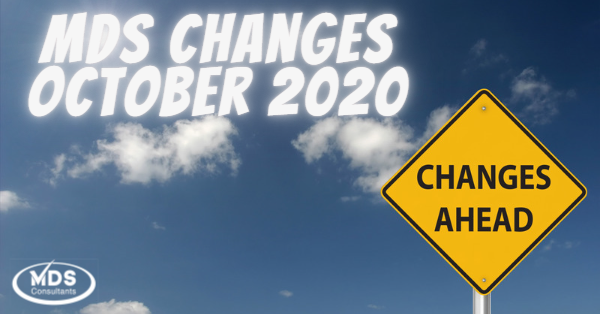In late June, CMS addressed two issues and posted MDS 3.0 Final Item Sets (V1.17.2). The two edits were changes to facilitate the calculation of Patient-Driven Payment Model payment codes on OBRA assessments for states that wish to have this calculation performed. These two edits will be revised and go into production on October 1, 2020.
The purpose of these changes? To allow State Medicaid Agencies to collect and compare RUG-III/IV payment codes to PDPM ones and thereby inform their future payment models.
Each state will decide if providers will be required to use PDPM data for comparisons and payment under Medicaid. States may require PDPM data on OBRA assessments such as Comprehensive and Quarterly assessments. These item sets will now include section GG, item I0020B ICD-10 for the primary medical condition, and J2100 recent surgery requiring active SNF care. These new items sets offer minimal instructions.
- Section GG states, “If state requires completion with an OBRA assessment, the assessment period is the ARD plus 2 previous days; complete only column 1”.
- While I0020B and J2100 state, “complete only if A0310B = 01 or if state requires completion with an OBRA assessment.”
It is predicted that CMS will post coding instructions, but a complete RAI manual will not be occurring this year.
How should a Long-Term Care facility prepare for these changes?
- A facility should contact their local state agencies to determine if PDPM data will be required come October 1st.
- If the state is requiring this information, then the facility should look at data collection systems for OBRA assessments. Systems may already be in place to collect this data for skilled residents that can be applied to LTC residents.
- Staff nurses should also be educated on accurate coding of section GG. The facility may want to use a tool for the collection of section GG items that impact reimbursement.
Most importantly, don’t panic! Keep in mind – these changes are to inform future Medicaid payment models. While a state may require this information Oct. 1st, it will not impact payment on that date. This lag gives facilities and nurses time to develop systems, educate, and adjust as needed for accurate data before reimbursement changes.
The decision to add these items will be left up to the individual states. In a time when state health departments and facilities are dealing with a pandemic, the hope is that states will forgo these requirements until the LTC industry is more stable. On the other hand that is only the hope, so facilities may want to start preparing now.
More Resources
To get prepared, use our Functional Abilities (Section GG for nurses) tool: https://mdsconsultants.wpengine.com/minimum-data-set-forms/
For more information https://www.cms.gov/Medicare/Quality-Initiatives-Patient-Assessment-Instruments/NursingHomeQualityInits/NHQIMDS30TechnicalInformation
